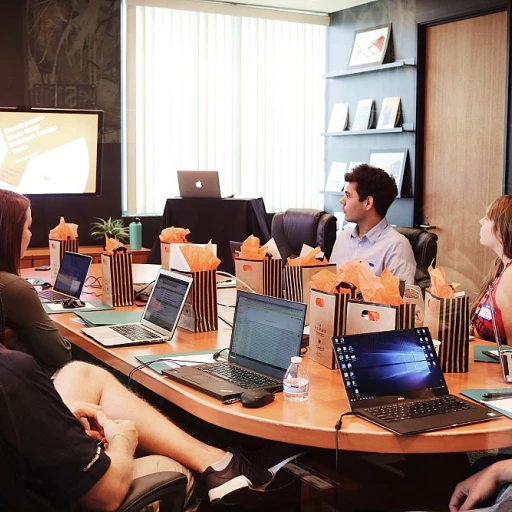
Understanding AI-Powered VR in Education
The Role of AI in Transforming VR Education
Artificial intelligence (AI) combined with virtual reality (VR) is reshaping how we approach education and training. By harnessing this powerful duo, educational content can be tailored to create truly immersive learning experiences. AI-powered platforms are instrumental in developing interactive simulations where learners can engage with scenarios that reflect real-world problems.
These adaptive learning tools allow for personalized learning paths, ensuring that learners grasp complex concepts through real-time feedback and customized content. Educational platforms leveraging AI and VR offer a unique opportunity for learners to explore interactive scenarios, bridging the gap between theoretical knowledge and practical application.
The integration of machine learning enables these solutions to analyze learning behaviors and styles, optimizing the platform’s response to each individual. This not only enhances the learning experience but also keeps engagement at its peak through dynamic and evolving immersive content.
Adapting to Diverse Learning Styles
One of the standout features of AI-enhanced VR is its capability to support diverse learning styles. By understanding how different individuals absorb information, AI can adjust the learning scenarios accordingly. For instance, visual learners may benefit more from augmented reality visuals, while kinesthetic learners might find value in hands-on VR experiences.
This tailored approach is rapidly gaining traction across various sectors, including corporate training environments where employees can benefit from a more hands-on approach to training. Traditional educational institutions are also recognizing the potential of this technology to transform conventional pedagogical methods.
For those interested in exploring further applications of immersive and engaging technologies, consider checking out insights on virtual team-building activities that leverage these advancements.
Benefits of AI-Enhanced VR Learning
Advantages of Dynamic Interactive Learning
In the realm of virtual reality, the integration of AI technologies marks a significant evolution of immersive learning experiences. By harnessing the power of machine learning and adaptive learning tools, learners can access a diverse range of tailored educational content and simulations that adapt to individual learning styles. This revolutionary approach offers a level of interactivity and personalization that was once unimaginable, fundamentally transforming education and training modalities.
AI-enhanced virtual reality allows for a more realistic and engaging learning platform where users can interact with scenarios and simulations that mimic real-world situations. This immersive learning experience is beneficial for acquiring practical, real-life skills in a safe environment. By leveraging AI, platforms can create complex, problem-solving scenarios where learners practice decision-making in real time, preparing them effectively for actual challenges.
Leveraging Personalized and Adaptive Learning
The use of AI in educational content creation facilitates personalized learning journeys. Learning platforms powered by artificial intelligence analyze user interactions, enabling the development of customized learning paths. This ensures that each learner receives content aligned with their specific needs, maximizing the educational benefit and engagement levels. AI tools continuously adapt to the learner's progress, providing real-time assistance and dynamically adjusting the difficulty level of the content.
Such adaptive learning capabilities make AI-powered VR learning solutions particularly effective in training sectors where varying learner proficiency must be addressed. These tools offer an optimal blend of efficiency and efficacy, significantly improving training outcomes.
Interactive and Real-Life Simulations
Interactive simulations in AI-enhanced VR settings offer hands-on experiences that reflect real scenarios users might face in their professional life. These simulations serve as invaluable tools for both education and professional training programs, enabling learners to practice in a controlled, safe virtual reality environment. The combination of virtual reality's immersive qualities with AI's intelligent personalization results in a learning experience that is not only engaging but also profoundly effective.
To further explore how companies are leveraging simulated environments for innovation and skill enhancement, you can read more on leveraging simulated environments for innovation.
Top-Rated AI-Powered VR Platforms
Leading Platforms Transforming VR Learning Experiences
In the realm of immersive learning, several powerful platforms are revolutionizing the way learners interact with educational content, leveraging both virtual reality and artificial intelligence. Here are some noteworthy AI-powered platforms that are enhancing real-world problem solving and training experiences:- Immersive VR Simulations: These platforms offer deeply engaging experiences through realistic simulations of real-life scenarios. By incorporating artificial intelligence, they enable learners to practice skills in a controlled, interactive environment, ensuring the repetition necessary for mastering complex tasks.
- Adaptive Learning Tools: Such tools provide personalized learning paths by analyzing learning styles and preferences. AI aids in tailoring the educational content and exercises to fit the unique pace and needs of each learner, thereby enhancing the effectiveness of their learning journey.
- Interactive Learning Experiences: Platforms that focus on immersive and interactive content, where AI delivers real-time feedback. These real-time interactions between the learner and the virtual environment mimic real-world situations, facilitating an adaptive and responsive learning experience.
- Virtual Reality Educational Content: As a subset of these AI-enhanced platforms, some focus exclusively on virtual reality education, combining VR's immersive characteristics with AI's adaptability. This fusion creates an unparalleled experience that holds potential for profound educational transformation.
Real-World Applications and Success Stories
Successes in AI-Powered Immersive Learning
AI-enhanced virtual reality (VR) has proven effective in delivering transformative educational content, bridging theoretical knowledge and practical skill-building. Several industries are already leveraging these cutting-edge learning solutions, reshaping how learners absorb knowledge through immersive experiences. One notable example is the healthcare sector. Virtual reality simulations enable trainees to engage in real-time scenarios where they can practice surgical procedures or diagnose patients. This interactive content fosters problem-solving skills in a controlled, risk-free environment, allowing for repeated practice until proficiency is achieved. In the field of aviation, AI-powered VR platforms offer flight simulations that replicate real aviation conditions. These platforms adapt to the learning styles of different individuals, providing customized challenges and feedback. Pilots can enhance their skills through these interactive tools, ensuring they're well-prepared for real flights. Corporate training programs also benefit significantly from these innovative tools. By adopting AI and VR, businesses can create adaptive learning platforms that offer personalized learning experiences. These solutions are particularly useful for managers and employees who must navigate complex scenarios in leadership and decision-making. Educational institutions are increasingly exploring VR for immersive learning. By integrating machine learning algorithms, these platforms can assess learners' progress and dynamically adjust the difficulty of content to match their skill level. This results in a more engaging and effective learning environment that complements traditional educational methods. These success stories underscore the potential of AI-powered immersive learning experiences in honing real-world skills. By blending artificial intelligence with virtual reality, educational content becomes more engaging, interactive, and effective, setting new standards in various fields of vocational and academic education.Challenges and Considerations
Overcoming the Obstacles in Integrating AI and VR
Venturing into the immersive realm of AI-enhanced virtual reality can open numerous doors for education and upskilling. However, it's not without its own set of challenges. Understanding these hurdles can pave the way for more effective adaptive learning experiences that cater to diverse learning styles and needs.
Technical and Operational Challenges
One of the primary challenges in implementing AI-powered VR is the technical complexity. Integrating real time augmented reality solutions with existing educational content requires sophisticated technical expertise. The learning platforms need robust infrastructure to support seamless, interactive experiences. This can often be a financial hurdle for educational institutions or organizations looking to invest in such cutting-edge learning tools.
Ensuring Accessibility and Inclusivity
While immersive learning platforms are game-changers, ensuring accessibility remains a concern. The cost of advanced VR equipment and adaptive learning software tools can limit accessibility for many learners. Moreover, content must be tailored to various learning styles to ensure inclusivity and engagement for every learner, regardless of their background or capabilities.
Adapting Educational Content for Immersive Platforms
Another challenge lies in transferring traditional educational models into immersive VR environments. Developing virtual reality scenarios that accurately simulate real life training experiences requires a delicate balance between creativity and educational integrity. Learning solutions must be crafted in a way that they uphold the objectives of the course while remaining engaging and interactive.
Data Privacy and Ethical Concerns
With AI at the core of creating personalized learning experiences, safeguarding learner data is paramount. The integration of machine learning algorithms in VR platforms poses questions about data privacy and usage. Establishing clear guidelines and adopting ethical data practices is crucial in nurturing trust among users and ensuring the responsible use of powerful AI technologies.
Continuous Research and Adaptation
The combination of artificial intelligence and virtual reality in learning is still in its nascent stages. It is essential to keep researching and evolving the technology to meet changing educational demands. Educational institutions and platforms must remain agile, continuously experimenting with and adapting their methods to optimize learning outcomes and successfully upskill learners in an ever-evolving digital landscape.
Future Trends in AI and VR for Upskilling
Anticipating the Next Phase of Education
The realm of AI-enhanced VR learning is already proving transformative, and the coming years are bound to bring even more compelling developments. As industries continue to recognize the potential of immersive learning experiences, significant investments in these educational technologies are shaping the future of how we acquire skills and knowledge.Personalized and Adaptive Learning
The convergence of artificial intelligence with virtual reality is ushering in an era of personalized learning. AI-driven platforms are now capable of tailoring content and scenarios to adapt to individual learning styles and preferences. This precise adaptation not only enhances engagement but also ensures that learners absorb and retain information more effectively.Augmented Reality: A Growing Reality
While virtual reality has captured much of the spotlight, augmented reality is gaining traction as a complementary tool in immersive learning. As educational content becomes more sophisticated, AR is providing layer-after-layer of interactive content over real-life environments. This integration further enriches the learning experience by offering real-time feedback and interactive simulations.Broadening Accessibility to Cutting-Edge Technology
The drive to make these advanced learning platforms accessible across diverse economic backgrounds is critical. As technology evolves, stakeholders in education and technology sectors are focusing on creating cost-effective solutions that allow a wider audience to benefit from AI-enhanced VR scenarios. This democratization of access aims to level the playing field in skill acquisition and training.Collaboration Across Sectors
Future trends indicate a growing synergy between educational institutions and technology developers. This collaboration is pivotal in refining the content and crafting tools that benefit both learners and educators. With continuous improvements in machine learning capabilities, educational platforms will keep evolving to create even more engaging and impactful exercises for users.Focus Areas for Future Development
As we look forward, AI and VR's role in upskilling will focus on several key areas:- Enhancing interactive tools and content.
- Expanding training simulations to cover diverse real-world applications.
- Developing more sophisticated problem-solving experiences.













